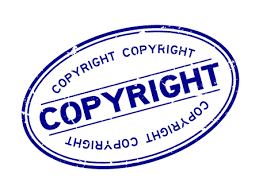In todays' week we are going to talk about the second chapter of a book by Rick Falkvinge and Christian Engström : The Case For Copyright Reform.
Chapter 2:
A Constructive Proposal For Copyright Reform

The book states that the Pirate Party's intention is to not abolish copyright completely, but free it for non-commercial purposes. It is mentioned as an urgent reform due to today's non-commercial copyright standards threatening peoples' rights such as private communication and freedom of information. Sharing a file is basically two private individuals communicating and sending each other binary code, so the only way to limit the usage or to imply copyright would be to go through all those individual messages and verifying the content is copyright-free. People are not willing to give up their privacy for big companies to make more money out of it. Apart from being uncontrollable to some extent, todays copyright legislation also limits the cultural expressions we might find interesting and useful. Due to these stated facts Copyright laws must be either reformed or dropped completely. The Pirate Party suggest reforming the laws as an alternative. The idea is to set all the non-commercial copyright free, shorten commercial protection time, but leave commercial exclusivity for business models to work.

It is mentioned that ,the proposal stated above, could be summarized in six different points.
1) Moral Rights Unchanged:
The moral rights of the author to be recognized like the author would be kept.
2)Free Non-Commercial Sharing
The copyright should be restored to back to how it was in the past, and only cover the commercial use.
3)20 Years of Commercial Monopoly
As todays' copyright protection time is absurd (life + 70 years) it should be reformed to a more logical 20 years after publication
4)Registration After 5 Years
Some works today are still subject to copyright, but it is impossible to find the owners, thus creating (orphan works). The proposal states that commercial exclusivity should be given to new projects as it is today, but the owners of the projects who want to extend their exclusivity for more than 5 years, should be required to register the right to public databases so it can be found with ease.
5)Free Sampling
As todays copyright laws are even more restrictive, it is hard to make certain works that use a part of the existing works in them. The book proposes that there should be changes to certain exceptions, thus freeing the production of remixes, parodies, and such.
6)A Ban on DRM
DRM(Digital Rights Management) is a set of technologies and rules that limit peoples' job of copying and sharing even when its legal. The book suggests that it must always be legal to circumvent DRM restrictions, and a ban on DRM technologies should be considered.
Overall, The book states the problems with todays' harsh copyright restrictions, and proposes adoption of new set of rules to follow that would make it more logical and beneficial for everybody. And to the question "But how will the artists get paid, if the file sharing is set to free?" is addressed as the cultural sector, as any other industry will continue to do good even after these proposals. And the chapter ends with a reminder that reformation of copyright laws is urgent.





Yorumlar
Yorum Gönder